2022 WILD Alumni are leading in-country WILD trainings across more than 20 countries to share what they’ve learned during WILD and empower other women with disabilities in their communities.
MIUSA welcomed 23 Loud, Proud, and Passionate!® disabled women activists from 22 countries to Eugene, Oregon, U.S.A., for the three-week Women’s Institute on Leadership and Disability (WILD) program in June 2022. WILD brings together disabled women from predominately developing world countries for an intensive three-week leadership experience, which includes meeting with international development organizations and staying with a U.S. homestay family.
However, WILD does not end after three weeks in Eugene.
Upon return to their home countries, each 2022 WILD delegate received a small grant from MIUSA to implement a WILD training in their own communities using the principles they learned during WILD, including ensuring cross-disability representation, which was new for many delegates.
MIUSA is still receiving reports of these in-country WILD trainings, and already received reports from many countries, including Bangladesh, Botswana, Brazil, Cameroon, Costa Rica, Egypt, El Salvador, Ethiopia, India, Indonesia, Mauritius, Nigeria, Peru, Poland, Rwanda, Sierra Leone, and Vietnam. In total, these trainings have reached nearly 400 women and girls with disabilities globally, with many of those participants planning related activities as part of their “action plans” developed during their respective in-country WILD trainings.
Each training included approximately 20 women and girls with various disabilities, and combined training workshops with empowerment activities. Training on topics such as Women’s Health, Inclusive Education, or Policy and Legislation, allowed for WILD leaders to share information from a disability rights perspective with participants in an interactive setting. Empowerment activities such as boating, yoga, dance, and recreation, allowed time for participants to bond with one another and build upon their self-confidence.
Many trainings included an Action Planning session towards the end, which gave an opportunity for participants to commit to the actions they will take to further empower women and girls with disabilities in their community as a result of their participation in WILD.
MIUSA is pleased to highlight five of these projects and the impact on WILD leaders and participants: WILD-Indonesia, WILD-El Salvador, WILD-Nigeria, WILD-Vietnam, and WILD-Bangladesh.

In Indonesia, WILD delegate Norma Ngewi led a one-day training for 30 women and girls with diverse disabilities. The training was held at a public outdoor park used for recreation.
WILD-Indonesia focused on Inclusive Sports and Recreation, with the goal of cultivating self-confidence and empowerment among participants, many of who had not left their homes in a long time. The training began with discussions about leadership and self-esteem, before moving on to accessible team-building challenges that required creativity and communication between participants. For many participants, this was the first time visiting the public park and the first time connecting with other women with disabilities in their community.
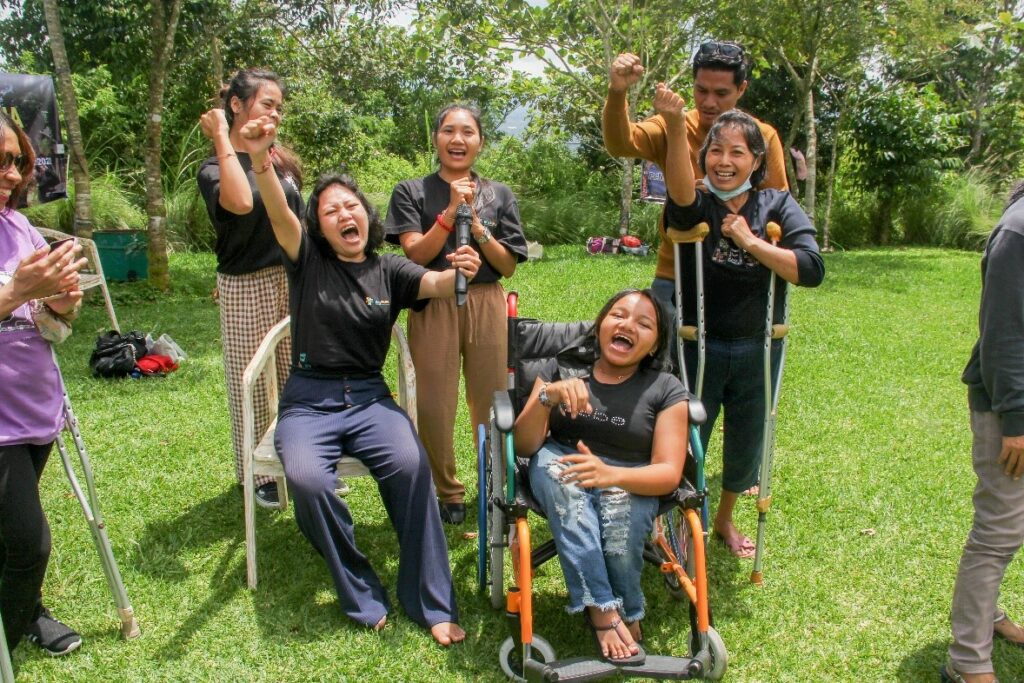
Norma reflected:
“For me, this training was like getting a turtle out of its shell. This activity was successful because it gave a different touch to assistance [for women] with disabilities. This touch opens their horizons that life cannot be lived alone, but must go hand in hand. Likewise, organizations should not be [only] relying on their own strengths, but must partner and form a force to support each other. The hope for inclusion can be achieved if we are together.”
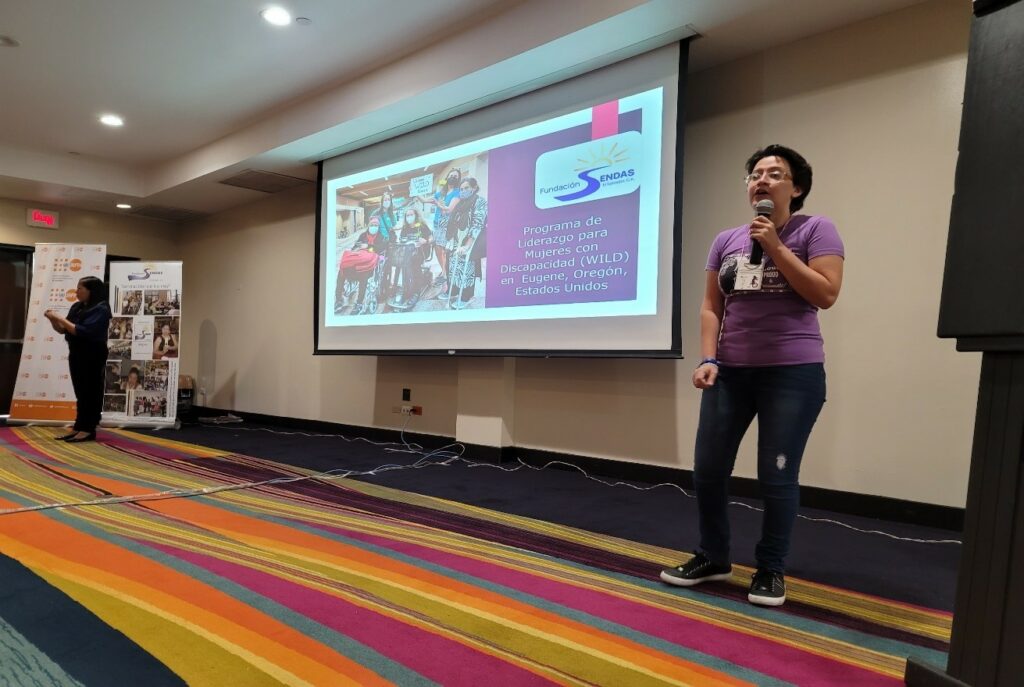
In El-Salvador, WILD delegate Valentina Monteagudo led a four-day training for 22 women and girls with diverse disabilities. WILD-El Salvador included workshops on topics of Empowerment and Leadership of Women with Disabilities, Sexual and Reproductive Rights, Prevention of Violence against Women, Legal Frameworks, and Self-Care in Sexual Health, Hygiene, Image, and Taboos. Valentina also presented on her experience as a WILD delegate in Eugene, Oregon.
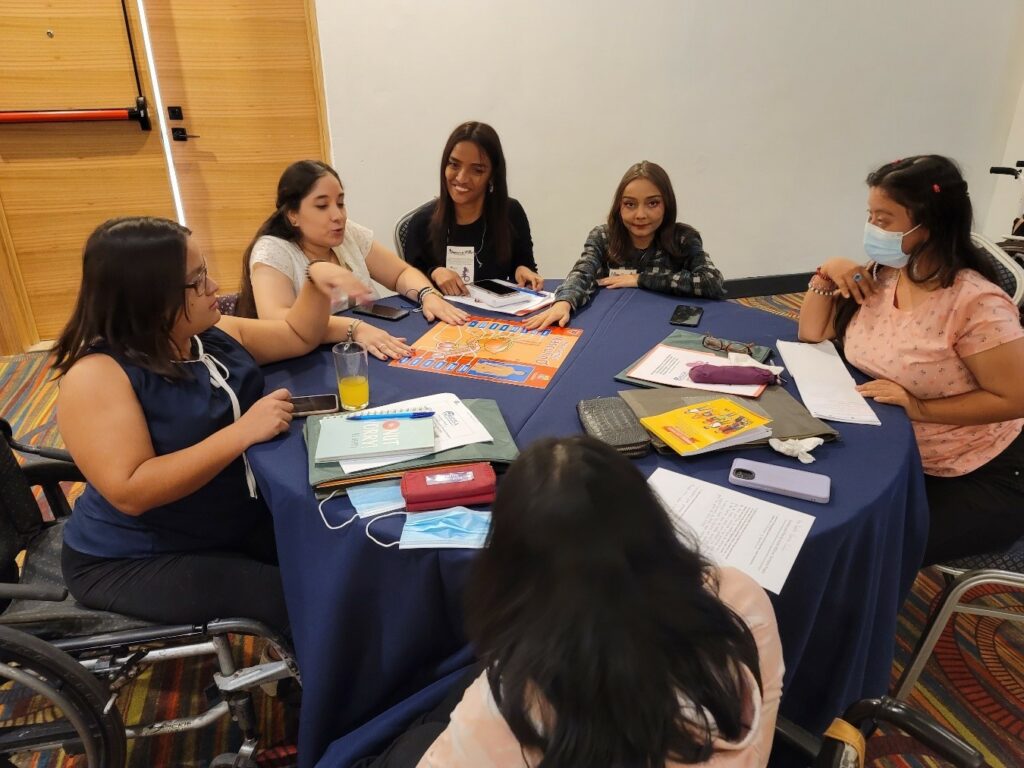
Empowerment activities during WILD-El Salvador included a choreographed group dance, roleplays, and a visit to the beach. Participants also engaged in a forum on advances and challenges related to sexual and reproductive health of women with disabilities, created action plans, and earned certificates at completion of the training.
Valentina reflected:
“Personally, for me as a facilitator of WILD El Salvador 2022, it has been a unique experience where I tested my ability. I realized that my ability goes beyond my limitations and fears, and with the help of my fellow organization and my co-facilitator, I managed to overcome many challenges. Now I feel empowered to continue developing my leadership and lead other projects in the future.”
The WILD-El Salvador training was supported by the Australian Government.
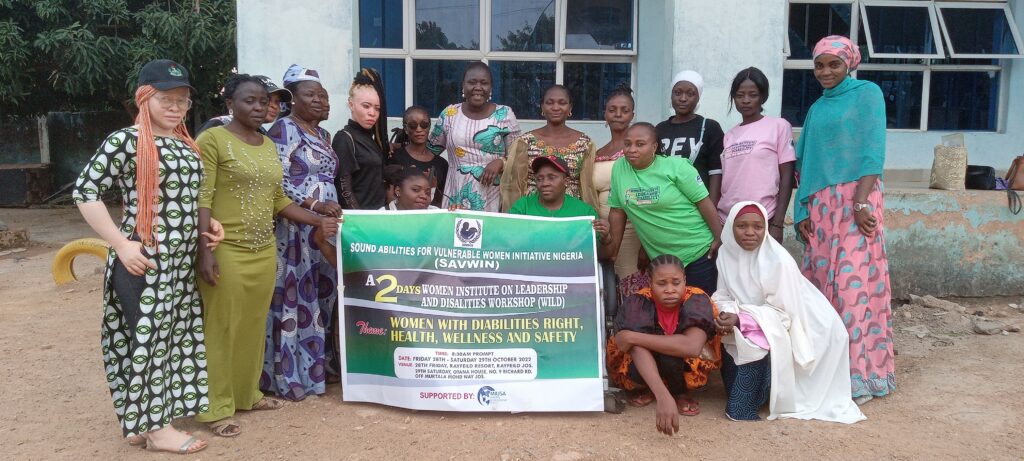
In Nigeria, WILD delegate Miyausa Wayuta led a two-day training for 20 women and girls with diverse disabilities in Jos, Plateau State. The first day of WILD-Nigeria included workshops on topics of Disability Rights, Reproductive Health, and Prevention of Gender-Based Violence. The second day included workshops on Mental Health, Menstrual Hygiene Management, and Sexual and Reproductive Health Rights, with a panel discussion on Female Genital Mutilation, a topic that was new information for some participants.

As an empowerment activity, participants had the opportunity to visit the riverside and ride in an accessible boat. For many participants, particularly women using wheelchairs, this was their first experience in a boat. Miyausa noted this was a powerful experience for several women.
Miyausa reflected on the positive impact of the format of WILD, which combines training workshops and empowerment activities:
“This was the first and best of all programs [participants] had attended which mixed both teaching and empowerment, the first workshop that took them outside the town to a resort centre for teaching and relaxation, the first workshop that did not jam-pack them with teaching from 9am-6pm, but gave time for relaxation and bonding. The first time to see the women so well informed and ready to go teach what they learnt.”
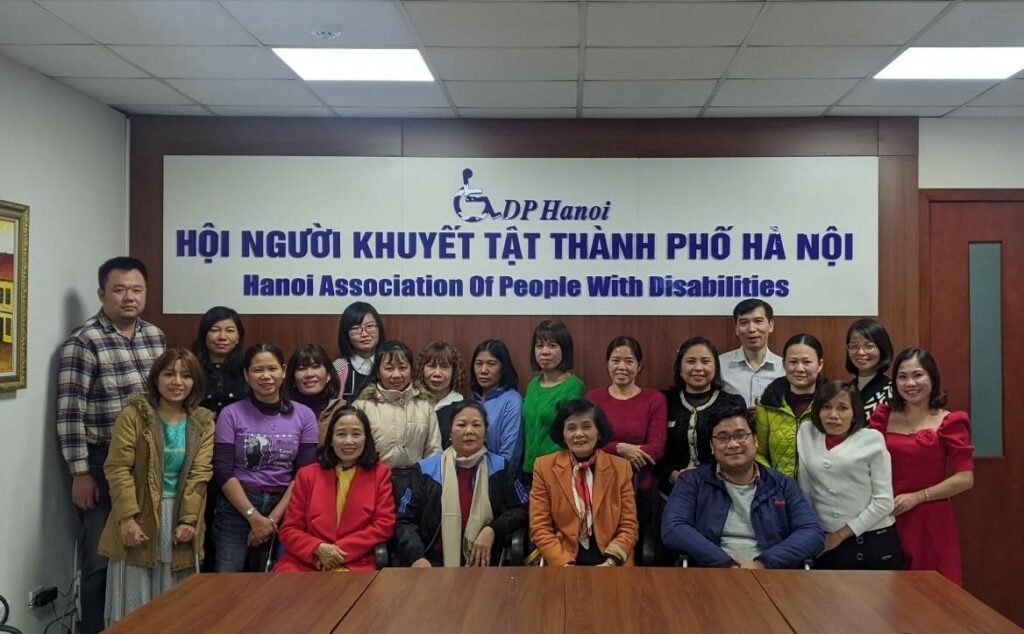
In Vietnam, WILD delegate Hong Giang Nguyen led a training for 20 women with diverse disabilities. The full-day training focused on the topic of Media and Advocacy, including how to use the media to empower women with disabilities.
Giang invited presenters to share expertise on the role of journalists and reporters, as well as the various types of social media and how to protect users on social media. As an empowerment activity, WILD-Vietnam participants engaged in interview skills workshops and will each record a short and powerful introduction video to be shared on DP Hanoi’s social media post-program.
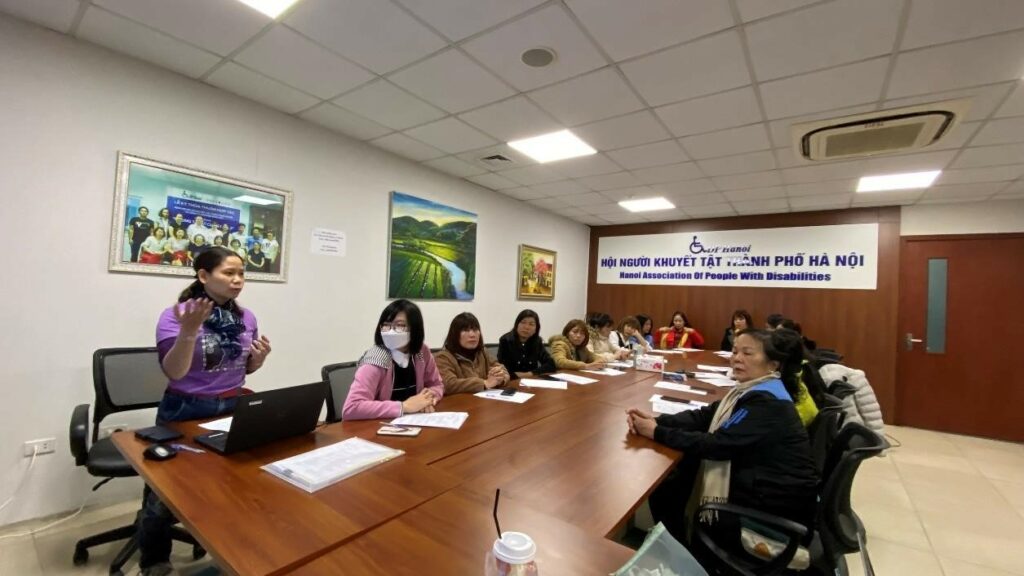
The most important achievement of this training, as reported by Giang, is that most participants have never had media training before. WILD-Vietnam was their first opportunity to learn about media, how it can empower women with disabilities, and how women can use media to present their own proficiency in management or connect with reporters for their events.
Giang reflected on the value of interactive training, a key aspect of WILD, noting:
“After this training, I recognize that more practice than theory will be useful, interesting and attractive to participants. In practice, trainees can apply their knowledge from [the] trainer and guest speakers’ sharing immediately. Then, those experts will have comments, feedback and guide them how to do better.”
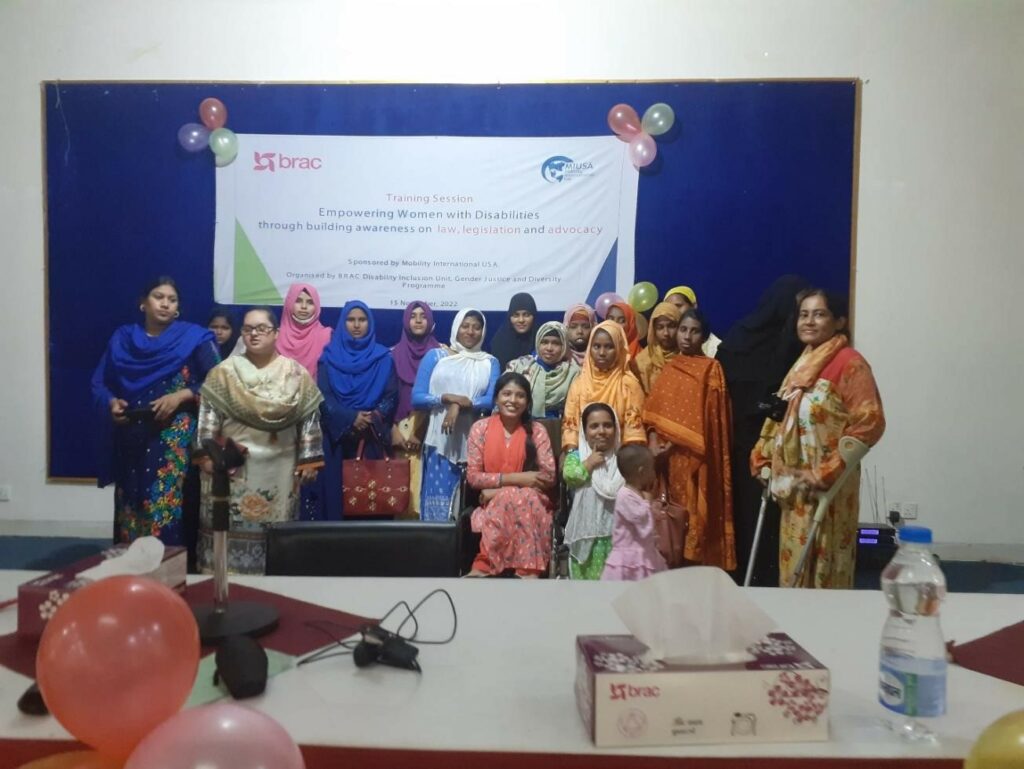
In Bangladesh, WILD delegate Sharmin Akbari led a full-day training for 20 women with diverse disabilities. WILD-Bangladesh focused on topics of of Policy, Legislation, and Advocacy, with training sessions related to types of disability, language and terminology, national and international disability laws, in particular the Disability Rights and Protection Act of 2013, and accessible infrastructure.
Sharmin organized the training to be interactive, including many discussions among participants. As empowerment activities, WILD-Bangladesh included a yoga session, a storytelling activity, and several group games.
After the conclusion of WILD-Bangladesh, Sharmin organized a group follow-up meeting and made individual follow-up visits to the homes of participants who could not attend the group meeting to check in about how the training had impacted them.

Many participants reflected on the impact of WILD-Bangladesh, and how they were committed to sharing what they learned with other women with disabilities in their communities. One participant shared:
“I want to circulate what I have learned today, so that [other] women with disabilities can [benefit from] this training.”
We look forward to sharing more about the various WILD projects implemented by the 2022 WILD delegates in more than 20 countries, and to learn from the experiences of these Loud, Proud, and Passionate® leaders!
Sign up for our E-News
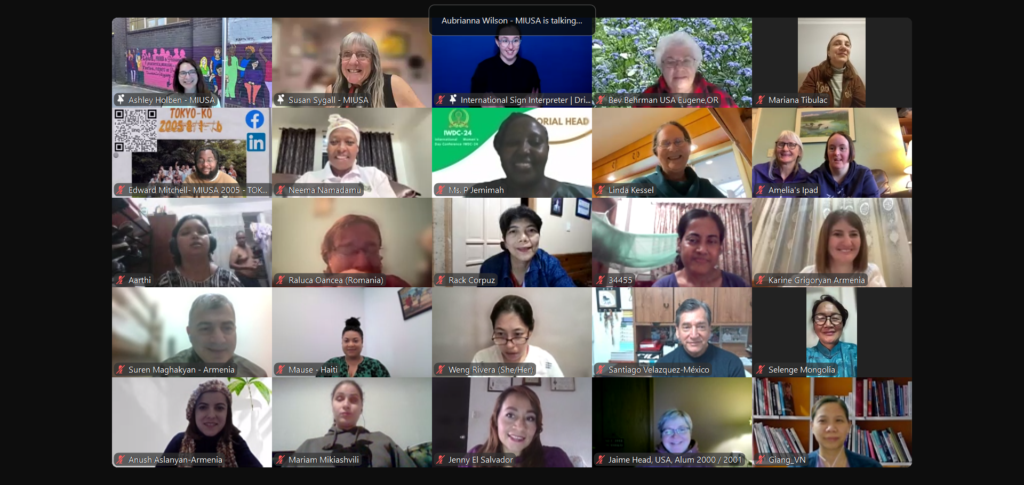
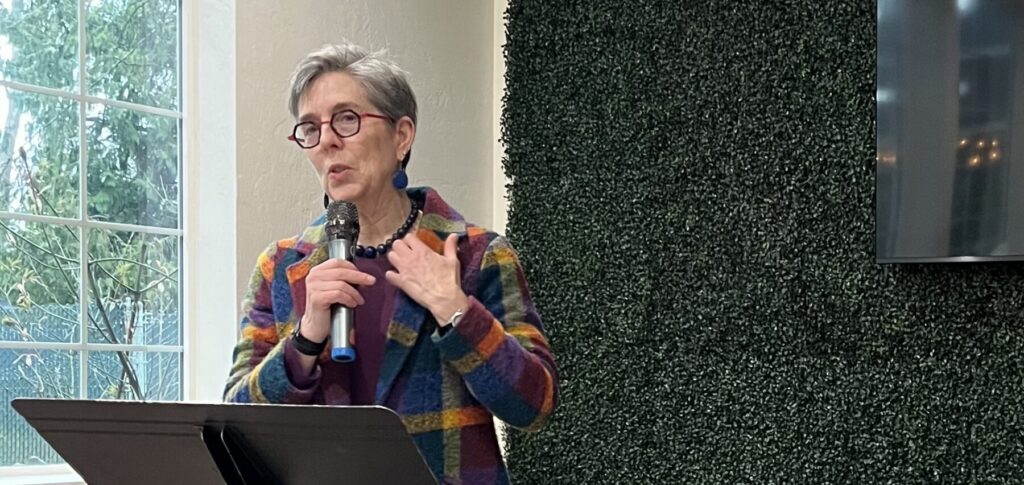




Manage Your Privacy